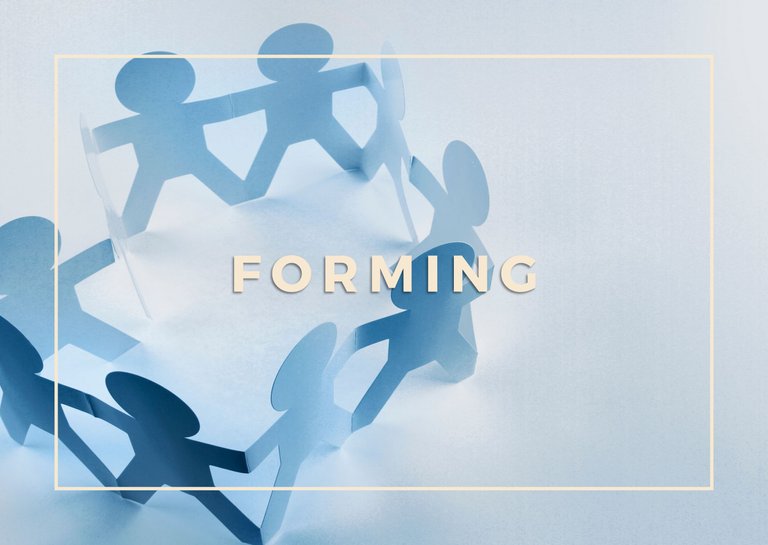
This means that things went well in the classroom, but it also definitely has to do with how I worked with my colleagues.
A good work day is when I am working nicely with my colleagues.
It is good to reflect on this from time to time.
And look at how this is going within our team.

My team of colleagues is divided between these two locations.
I am the lucky one who works at both places but at one a little more than the other.
Our school has grown in recent years, and it was also necessary to expand our team.
New and often younger colleagues were hired.
As our school continues to grow, a reorganization is planned, and some changes are also being made within the management.

Management believes that a reorganization can solve this problem.
I also have ideas about this and have already started discussions with management.
There are better solutions than just separating the colleagues between whom things are not going well.
By doing so, you disadvantage other colleagues with a perfect working relationship and are therefore forced to stop working together.

Due to changes within a team, it can happen that it no longer runs smoothly.
A team develops by working together and through guidance from a manager.
According to Tuckman, a team develops in certain phases:

Phase 1: Forming
They are focused on the supervisor.
The latter tells them what to do.
The new colleagues on a team have yet to learn that either; they still need to be inducted.
It does not mean they are stupid.
There can also be uncertainty.
In this first phase, people often wonder whether they belong on the team.
They can only learn when they feel they belong—when they feel accepted as people, even if they are different from others.
In a team, it is not necessary for everyone to be the same.

Phase 2: Storming
The team starts figuring out its norms.
Team members feel more confident in this phase and dare to stand up for specific values and stand firm.
What is important to you must dare to come to the surface.
You must be able to stay with yourself.
Sometimes, it will also appear during this phase that some members need help or want to work with each other within a team.
This happens when differences are too significant.
If so, a different team or employer may be a better choice to move forward and grow in your career and career path.

Phase 3: Norming
Team members give each other solicited and unsolicited feedback and can do so correctly.
Rules are clear, and people address each other directly.
People check what was agreed upon and are willing to adhere to it or bring it up again in a meeting or other deliberation.

Phase 4: Performing
But now, one is also open to the outside world.
Whatever is necessary to perform even better is done.
Stepping in or exchanging with another team is seen as positive.
Dissatisfied parents are dealt with professionally.
Together, we look at how this is handled and how things will continue to go well in the long term.
According to Tuckman, these team development stages are important for the manager, who must be aware of what guidance helps the team grow further.
The manager's style ensures that the team becomes more independent.
Doing this in a more coaching manner ensures that a team becomes more independent and grows toward greater maturity.
A team that finds itself is mature.

A starting team in phase 1 needs a lot of clarity, and a manager must know that a new member may still need to dare to speak out fully.
The one-on-one contact between a supervisor and a new member is then crucial to helping them gain a place on the team.
Taking time to get to know a colleague is good then.
You do this by asking questions and explaining how you are used to working. Make sure the atmosphere is open.
Remember that a new colleague can also add something new and pleasing to the team.
By guiding interactions, a manager can ensure that a team will work together nicely.

Tips for team members:
- Open up and show interest in your colleagues.
- You are never too old to learn something.
- Every colleague can offer you something new.
- Ask open-ended questions to elicit a comprehensive response.
- Name it when you see growth in your colleague. Positive feedback
- Give positive and negative feedback, but also be open to receiving it yourself.
- Discuss how you experience the collaboration
- Every beginning is difficult; help your new colleague find his way

Tips for leaders:
- Make sure you have every team member in the picture.
- Give room for discussion while drawing up goals and plans.
- During consultations, there should also be room to discuss the team atmosphere.
- Being aware of each other's qualities is essential for all team members.
- Know what is essential to each employee.

We collaborate effectively, provide honest feedback, and operate with clear guidelines and direct communication.
Positivity, honesty, openness, and respect are our cornerstones.
Previously, team members who weren't a natural fit transitioned to other groups (phase 1).
Now, with this restructuring, we're revisiting phase 1.
While this change brings tension and stress,
I trust my manager to navigate the process effectively.
During this phase, she'll likely re-evaluate team dynamics and placements, ensuring optimal team composition.
Beyond trusting the process, I'm also praying for a smooth transition and wise decision-making on the part of my manager.
Let's hope it all turns out great for all in the end.


📷 Banners, dividers and photos: Created with Canva Pro













Posted Using InLeo Alpha
